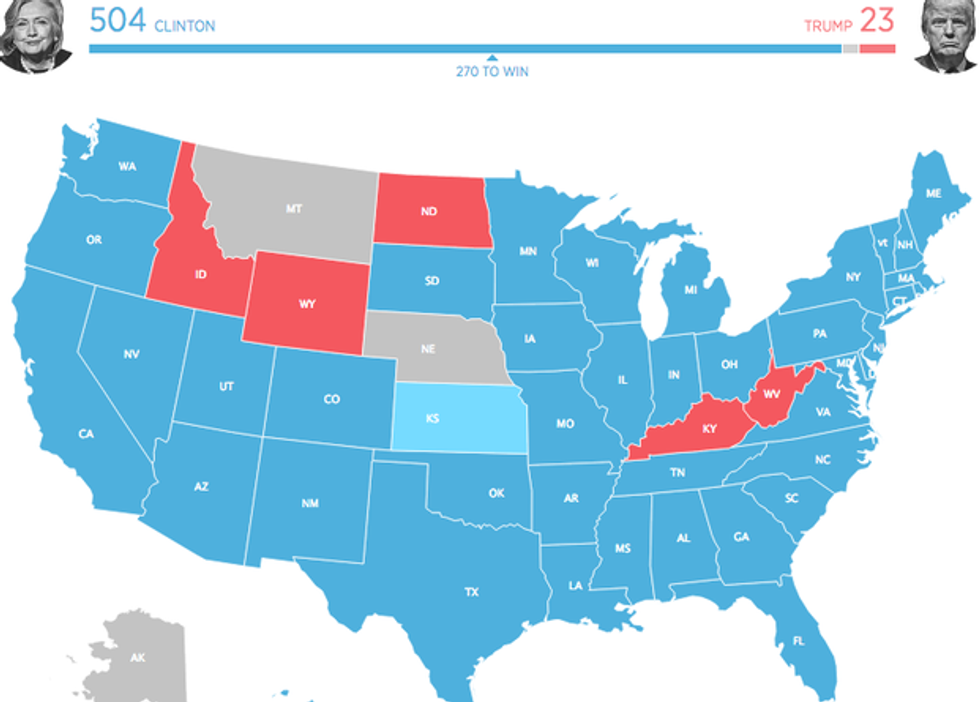Donald Trump has been a centerpiece in American cultural dialogue since announcing his candidacy for president. Alongside the progressive rhetoric of the Black Lives Matter movement, the nationwide legalization of gay marriage, the protection of Planned Parenthood, and the first female candidate for President, the media surrounding his campaign drew special attention in its polarizing and provocative nature. He was inexperienced, business-oriented and anti-establishment. His antics were an anomaly in media, lacking the political correctness that has characterized modern discussion of systemic issues like immigration, poverty, racism and sexism.
These defining attributes appear as marks against him, especially in contrast with his opposition Hillary Clinton, a person so well-versed in politics and articulate in speaking to social issues. With a candidate as extensively qualified as Clinton, a candidate with diverse support from public figures ranging from Barack Obama to Beyoncé, this was a question that plagued white liberals watching the polls on November 8th, including myself: "How the f**k did Donald Trump win this election? How did a man with the approval of the Klu Klux Klan and Vladamir Putin become President of the United States in 2016?"
Pure anger and shock was my initial reaction to this outcome. I pointed an accusatory finger at the uneducated, poor, white male voter flying the confederate flag off their truck in rural ~insert red state~. However, we cannot blame Trump's “deplorables”. After polling, it was shown that the income of the average Trump voter was $72,000 per year, and white women supported Trump over Clinton by 54% to 42%. It was in pouring over Trump’s demographics that I realized the privilege in my surprise to his victory. I believed Hillary Clinton could win because I am an upper-middle class, straight, white and educated citizen of the United States.
Rather, I believed Hillary Clinton could win because I could afford to believe that America was making great strides in regard to racist, xenophobic, and homophobic attitudes that are so pervasive in our nation. I can be sympathetic in working to equalize these inequities in society, but I cannot empathize because I do not experience the realities of these attitudes, and so they were not entirely real to me. Needless to say, I think minorities experienced a lesser degree of shock.
As a woman, however, I was hopeful that a female presidential nominee represented systemic change. Now, I am threatened by potentially intensified sexism and misogyny in the precedent set by Trump’s language surrounding women: bragging about groping women, denying sexual assault charges with reasoning that the women in question were “too ugly” to sexually assault, suggesting that his own wife should not work because she should prepare dinner, threatening to appoint Supreme Court judges that will revoke my Constitutional right to receive an abortion, and that will contend that my birth control does not always have to be encompassed in health insurance by religious justification. I am threatened and I am devastated.
Trump’s base is not his creation; this was America all along. I do not suggest that every Trump voter is racist, sexist, xenophobic or homophobic. However, if you are a Trump supporter and do not identify with these labels, then you are a bystander and a poor ally; you are complicit in the fact that millions will be so negatively impacted by his policies (his Vice President literally believes you can convert gay people to being straight #okay!). So while yes, great strides in our nation have been made, the backlash encompassed in Trump’s win undermines their ability to withstand.
Take a look as this map. You have probably seen it before because it speaks volumes; it shows the fact that had millennials determined the election, the United States would be overwhelmingly more progressive.
This map is my silver lining. While it only represents millennials who voted (and many did not), the fact that my priorities are in line with that of my peers gives me hope moving forward, in working to respond to Trump’s presidency in a productive way.
I find the #NotMyPresident initiative counterproductive to the liberal agenda. We must face the reality that he is our President and participate in democracy to ensure that our values hold traction in the government. Participate, participate, and then participate more! Vote! Protest! Speak up! Young people are responsible for ensuring that when the next election comes around, it is not the voices of just over a quarter of eligible voters that determine the outcome. So I urge you, assume this responsibility to some degree.











































